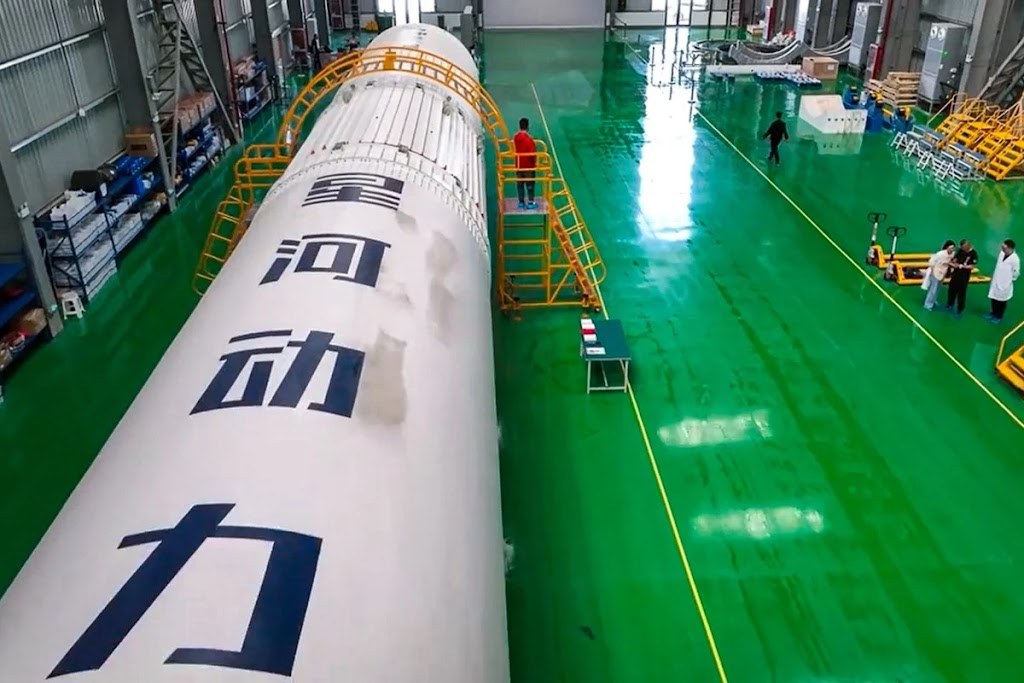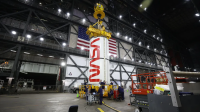Chinese launch start-up Galactic Energy is preparing for the unveiling of its reusable rocket later this year, potentially marking a significant milestone as the first of its kind developed in China to reach orbit. However, it remains uncertain whether the rocket will be recovered during its inaugural flight.
Named after the Greek goddess Athena, Pallas-1 is scheduled to launch from a spacecraft launch center on Hainan Island in November, as reported by local news site Hinews.cn. The 49-meter (160-foot) kerosene-liquid oxygen rocket is designed for reusability, with an anticipated lifespan of up to 50 launches.
Galactic Energy's CEO Liu Baiqi provided updates on the rocket's progress during a recent visit to the launch center, addressing various aspects such as the launch pad, satellite interface, and spacecraft tracking in preparation for the upcoming mission. Liu expressed confidence in the readiness of Pallas-1, stating that spectators would be able to witness the launch from the coast of the South China Sea.
Regarding the retrieval of Pallas-1's first-stage section during its maiden flight, a company representative declined to disclose specific details at this time.
Currently, SpaceX in the United States stands as the sole company to achieve partial reusability of its rockets, namely Falcon 9 and Falcon Heavy, aimed at reducing launch costs and increasing the profitability of orbital flights.
Powered by seven homegrown Cangqiong engines in its first stage, Pallas-1 boasts the capability to lift payloads of up to 5 tonnes into low-Earth orbit or 3 tonnes into a sun-synchronous orbit 700km (435 miles) above the ground.
Established in 2018, Galactic Energy has emerged as a prominent player in China's commercial launch sector, boasting a strong track record of successful flights with its small solid-fuel rocket Ceres-1.
In December, the Beijing-based company secured 1.1 billion yuan (US$153.5 million) in funding for Pallas-1, earmarked for research and development of reusable launch vehicle technology and associated infrastructure.
Despite reports suggesting that Pallas-1 may not be recovered during its November launch, Galactic Energy has conducted tests using a small craft powered by a jet engine to validate the rocket's guidance, navigation, and control software for reusability.
Other Chinese companies, including iSpace and LandSpace Technology, are also in the race to develop reusable rockets, with plans for debut flights featuring first-stage recovery slated for 2025.
China's commercial launch sector sees the development of reusable rocket technology as crucial for reducing launch costs and securing contracts for satellite-based internet constellation projects, such as GuoWang, backed by the Chinese government, and the proposed G60 Starlink project supported by the Shanghai government. These initiatives aim to compete with SpaceX's Starlink in providing broadband internet services from orbit.







